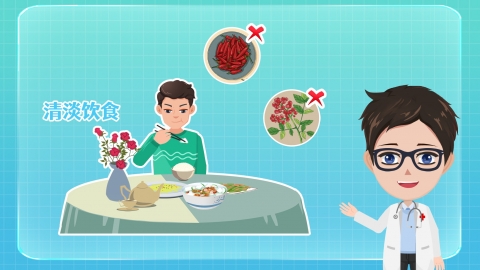What should cancer patients pay attention to in their diet?
Under normal circumstances, key considerations for the diet of cancer patients include maintaining balanced nutrition, choosing easily digestible foods, controlling fat intake, avoiding irritating foods, and ensuring adequate hydration. If undergoing cancer treatment or recovery, it is advisable to adjust dietary habits according to individual conditions. A detailed analysis is as follows:

1. Maintain Balanced Nutrition
Cancer patients typically experience increased physical depletion and require sufficient intake of nutrients such as protein, vitamins, and minerals. Protein helps repair tissues and maintain immune function and can be obtained from sources like eggs, lean meat, and soy products. Vitamins and minerals enhance the body's resistance and are best acquired from fresh vegetables and fruits, helping prevent treatment delays or impaired recovery due to nutritional deficiencies.
2. Choose Easily Digestible Foods
Some cancer patients may experience weakened digestive function or gastrointestinal discomfort due to treatment. In such cases, soft, easily digestible foods—such as porridge, steamed eggs, and well-cooked vegetables—are recommended. These foods reduce gastrointestinal strain and help prevent discomfort like bloating or abdominal pain, thereby improving nutrient absorption.
3. Control Fat Intake
Excessive fat consumption increases metabolic burden and may negatively affect disease management. It is important to limit high-fat foods such as fried items, fatty meats, and animal organs. Cooking with plant oils—such as olive oil or rapeseed oil—is preferable, but even healthy fats should be used in moderation to avoid excessive intake.
4. Avoid Irritating Foods
Spicy, raw, cold, or overly hot foods may irritate the gastrointestinal mucosa or worsen discomfort during treatment. Examples include chili peppers, chilled beverages, and very hot soups, all of which may trigger adverse reactions and should be avoided whenever possible.
5. Ensure Adequate Hydration
Sufficient fluid intake promotes metabolism and aids in eliminating waste products from the body. It also helps prevent dehydration and constipation, which may occur during treatment. It is recommended to drink 1500–2000 mL of warm water daily. Light soups and fresh fruit juices may also be consumed in moderation, but sugary drinks should be avoided.
In daily eating habits, regular meal times are important; overeating or extreme dieting should be avoided. Eating small meals more frequently can reduce gastrointestinal pressure. If significant loss of appetite, nausea, or vomiting occurs due to treatment, inform the healthcare provider promptly. When necessary, nutritional supplements may be used to ensure adequate nutrient intake. Do not neglect nutrition due to eating difficulties, as this could impair recovery.




